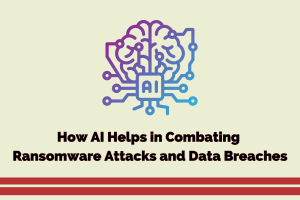Why Cyber Security is a Priority for Small and Start-up Businesses

Small businesses and start-ups have a variety of tasks and responsibilities on their plate while they build a successful business. While prioritizing, too many times the management will put cyber security on the back burner. It is easy to demote as a priority because on a day-to-day basis it seems unnecessary, as though your business can function entirely without it. That is until it is too late.
If your business gets hacked, which can cause a long series of internal errors and business-halting problems, it can cost thousands of dollars to fix. It may also mean your business is not functional for several working days, which can cost your business more than just dollars. It can cost you your reputation and your clients’ trust, one of the cornerstones of a successful small business.
Related : 15 Online Free Tools to Scan Website Security Vulnerabilities & Malware
It is an unfortunate reality that management for many small businesses is inattentive towards their cyber security, and this is a weakness that hackers are more than happy to take advantage of it.
Why Are Small and Start-Up Businesses Targeted?
Without proper attention, the vulnerabilities of a small or start-up business may demolish a company’s profits and productivity. However, with a series of steps, this can be turned around, and you will be sure to protect your business from would-be hackers.
- Employee Regulations: First, set up the rules and regulations you have for your employees, regarding their computer and technology usage. This should be in written form and shared with the entire company. Ensure this document includes regulation on how to properly handle sensitive customer data.
- Employee Training: Show your employees the best way to conduct business online or on the servers. Training should include how to create secure passwords, what software can be downloaded and used, how to access company servers in a secure manner, and what to do about non-company apps (especially on the employee’s mobile phones).
- Install an SSL Certificate: Your web server should have an SSL Certificate installed to ensure the digital protection of any and all information that is passed online and between servers. This increases the cyber security of your communications with clients and partners.
- Restrict Employee Access: Share access to software, data, and more on a need-to-know basis for your employees. If you know exactly who has access, it is easier to control how it is managed and thus help it to remain secure. This should include controlling who can install and uninstall the software.
- Have & Use Data Back-ups: Don’t settle for just backing up your data. Be sure to test the process to make sure it is working, or the effort and cost may be wasted if it is not working.
- Stay Updated: Always make sure your firewalls and anti-virus protections are up-to-date, as these companies are constantly working against hackers and releasing the latest in security.
- Create an Incident Report: By tracking every incident, you can get a better idea of where your vulnerabilities lie, and in addition have a record of what employees have caused which problems (so you can improve training as needed).
The world of cyber security is changing and evolving at a rapid pace, and the smartest business owners are looking to stay a step ahead of the hackers to prevent the loss of profit and precious time. By following these steps, you can transform your vulnerabilities into a well-fortified business that your clients can trust.






